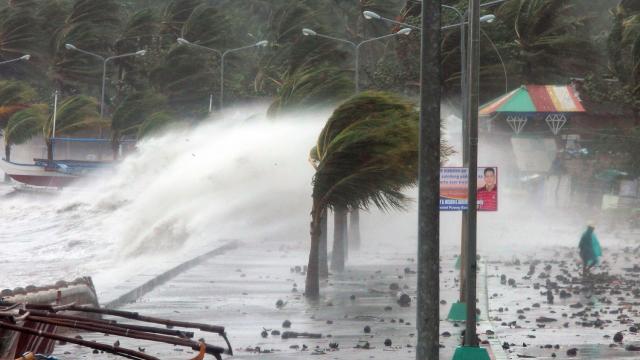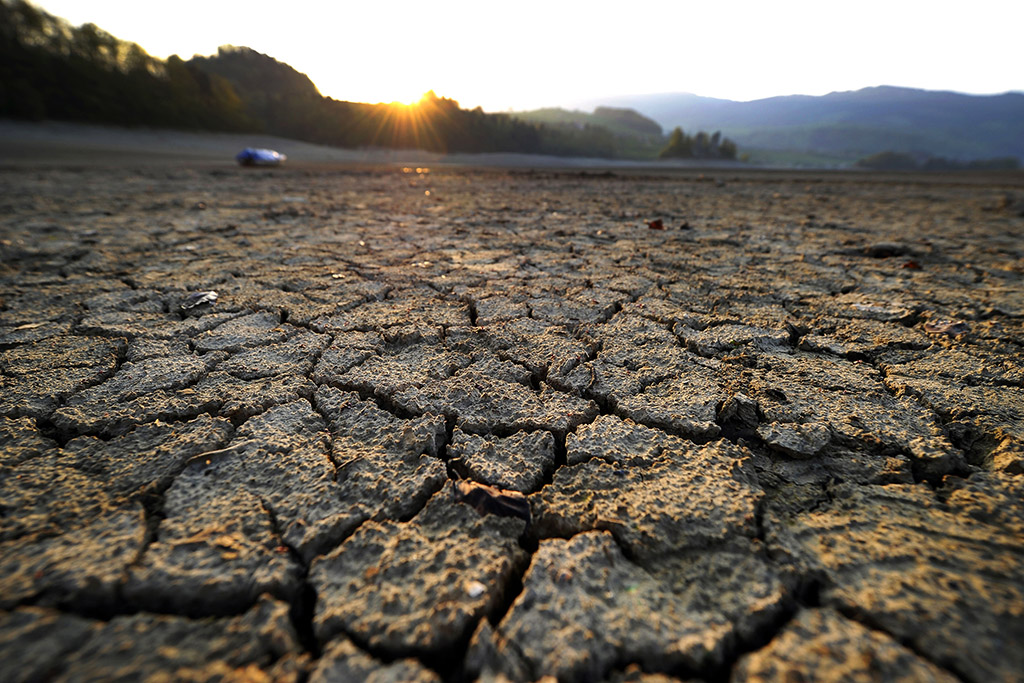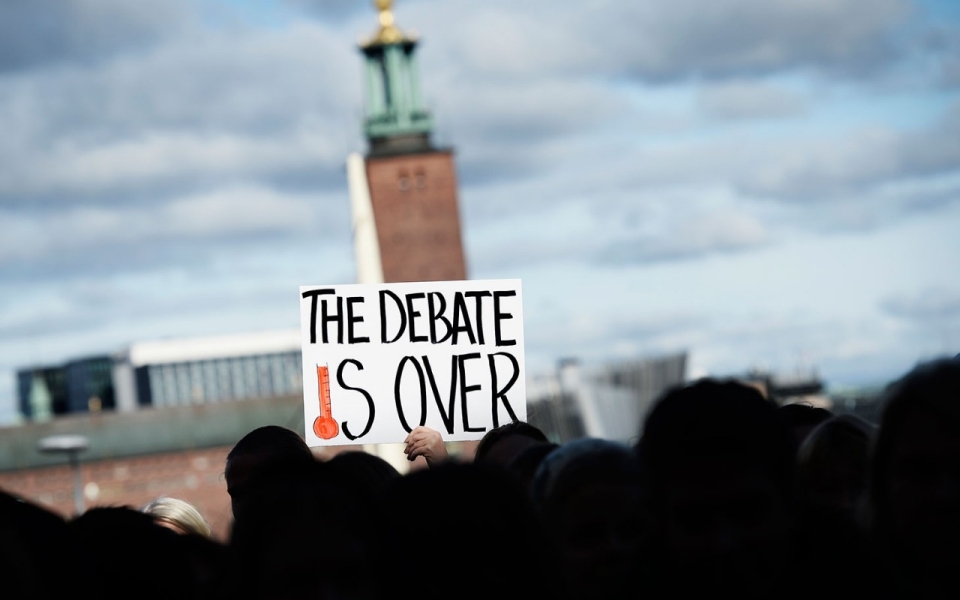
Climate envoys from developed countries, emerging economies and low-lying nations at risk of being swamped by rising seas will meet in Poland for the next two weeks to lay the groundwork for a new climate change pact.
The meeting comes as the Philippines reels from a massive typhoon that reportedly killed as many as 10,000 people, and recent reports saying climate change will exacerbate problems, such as poverty and extreme weather, that already exist.
Despite the seeming urgency of the issue, stubborn sticking points remain and no major decisions are expected at the conference starting Monday in Warsaw's National Stadium. The level of progress could be an indicator of the world's chances of reaching a deal in 2015.
That's the new watershed year in the U.N.-led process after a 2009 summit in Copenhagen ended in discord.
Climate change is "very, very scary stuff. And evidence is accumulating weekly, monthly as to how dangerous this will be. So there is a huge urgency that we get on with this," said Andrew Steer, the head of the World Resources Institute in Washington.
The urgency of the problem was underlined in a recent report by the Intergovernmental Panel on Climate Change, the U.N.-sponsored body that provides the scientific basis for the negotiations.
The IPCC said in September with more certainty than before that humans are warming the planet, mainly through carbon emissions from the burning of oil, coal and gas. It raised its projections for sea level rise and warned that the Arctic Ocean could be nearly ice-free during summers before mid-century if the world doesn't act to curb emissions.
"Global greenhouse gas emissions need to peak this decade, and get to zero net emissions by the second half of this century," U.N. climate chief Christiana Figueres said last week.
The hard part is deciding how to divide those cuts. Since they began in 1992, the U.N. talks have been bogged down by disputes between rich and poor countries over who should do what.
For a long time the U.S. was seen as the biggest foot-dragger — it was the only industrialized country that didn't join the Kyoto Protocol, a 1997 emissions deal. America's standing has improved under President Barack Obama, who has increased fuel efficiency standards for cars and trucks, worked to boost energy efficiency in federal buildings, invested in green energy and acted to cut emissions from power plants.
Blame Game
While many countries say the U.S. should do more, increasing focus is falling on the world's top carbon polluter, China, which is under pressure to fuel its economic development in a cleaner way than the U.S. and other industrialized nations did.
Beijing points to the West's historical responsibility for having pumped carbon into the atmosphere since the industrial revolution took off in Britain in the 18th century. But that argument is losing weight as Chinese emissions surge.
U.S. climate envoy Todd Stern noted in a speech last month that the cumulative emissions of developing countries will have surpassed those of developed countries by 2020.
Also, "it is unwarranted to assign blame to developed countries for emissions before the point at which people realized that those emissions caused harm to the climate system," Stern said.
Key details of the new treaty remain to be worked out, including whether all or parts of it should be legally binding. It's also unclear in what form national offers of post-2020 emissions cuts and other climate actions will be presented and by when.
Many key players, including the European Union, are pushing for countries to present their initial offers at a climate summit for world leaders called by U.N. Secretary-General Ban Ki-moon in September next year.
"In Warsaw, we must agree to prepare strong pledges for the 2015 deal and to step up emission cuts over the rest of this decade," EU Climate Commissioner Connie Hedegaard said.
Negotiators will face a host of recurring stumbling blocks, including money to help poor countries convert to cleaner energy sources and adapt to a shifting climate that may lead to disruptions of agriculture and drinking water, and the spread of diseases.
In Copenhagen, developed countries agreed to scale up climate financing to $100 billion annually by 2020.
Current flows are nowhere near that level. British charity Oxfam estimates that rich countries have announced contributions of about $16 billion this year, some of it in the form of loans.
Climate Change Deniers
Tense discussions are also expected on the calls by small island states and other vulnerable countries for compensation for the damage resulting from climate impacts such as rising seas and droughts.
Meanwhile, climate activists are concerned about coal-reliant Poland's role as host of the talks and have criticized the Poles for presiding over a coal conference at the same time.
The scientific basis for the U.N. climate policy was challenged Sunday at a meeting held by Poland's right-wing National Movement.
Polish and U.S. independent climate activists alleged there is not sufficient proof that carbon gases contribute to the rise in global temperatures or that human activity contributes to climate change. They asserted instead that the climate changes are due to regular warming and cooling cycles.
As always, there's a risk of procedural issues slowing things down. Last year's conference in Qatar ended on a bitter note when the chair gaveled a set of decisions despite Russia's objections.
Russia's chief negotiator was so upset that he blocked talks at a negotiating session in Germany in June.
Russia's protests reignited a discussion about the rules of procedure in the climate talks, which have not been formally adopted.
"We are wondering whether countries should invest too much time in the discussion unless they really want to solve it," said Wendel Trio, who heads the European branch of the Climate Action Network, an umbrella group of environmental organizations.
3 WAYS TO SHOW YOUR SUPPORT
- Log in to post comments

















